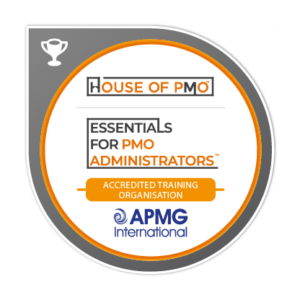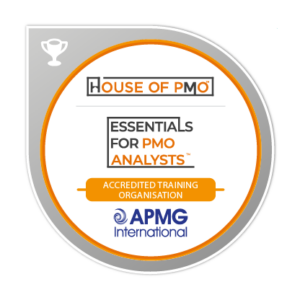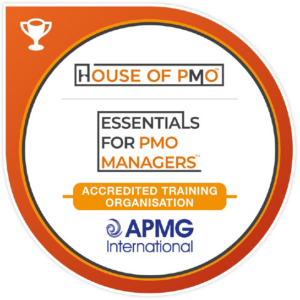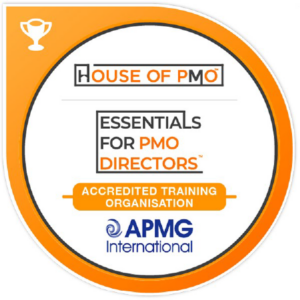
 Becoming a Project Administrator if you are currently working as a PA (Personal Assistant) is not as big a leap as you might think.
Becoming a Project Administrator if you are currently working as a PA (Personal Assistant) is not as big a leap as you might think.
Essentially a project administrator is someone who is highly organised, knows their way around a PC, works well with managers and teams and ultimately gets any administrative stuff done on a project.
This is not a million miles away from the role of a PA – so what else might you need to do to take that step from PA to Project Administrator?
Here’s four areas to consider in making it happen:
1. Understand the project management fundamentals
Don’t dive into a PRINCE2 course – it’s not the right time yet to be looking at that. Instead start with a fundamentals or introduction course to the principles and basics of project management. You could look at the APM Project Fundamentals course – or the Essentials for PMO Administrators.
The main objective here is to understand what the main techniques are in project management – understand what the terminology used is – and work out which parts of project management you never knew you knew but you absolutely will recognise them when you see them.
2. Brush up on your spreadsheet skills
Every Project Administrator uses MS Excel on a daily basis – they’re using it for logging information in areas such as financial; issues, risks and reporting. In fact ‘reporting’ is the number one thing a Project Administrator is doing – and most of the reports are done in MS Excel.
If you’re not comfortable with MS Excel – at least to the level of using things like pivot tables – then you need to concentrate on getting some development and practice in.
3. Recognise what the transferable skills are
When it comes to talking about your experience about your PA work with hirers who are looking for a Project Administrator – you need to be pretty hot on which areas of your work already slot in well to the Project Administrator role.
Let’s look at a real life example of a Project Administrator job advertisement.
Here are the roles and responsibilites:
- Create Project Folder on the system from template
- Add new Project to Sage Construct and produce regular Project Report
- Site files – set up project on eSite and upload relevant documents
- Add budget to project in Sage Construct
- Process sub contract payments, internal labor orders and payment allocations, using the Sage accounting system on a monthly basis
- Assist the Commercial Manager with job cost control, quotes and produce budgets to ensure client expectations are met, using Sage Construct
- Enter quantities for all framework rates into the budget using the schedule created at quotation stage
- Obtain breakdown information for non-framework (‘star’) rates from the Commercial Manager and enter into the budget
- ‘Procure’ and place orders as requested from the Delivery team using the Sage Construct system, using suppliers from the approved list
- Hire and off-hire plant and equipment as requested by the Delivery team, using approved suppliers, using the Sage Construct System
- Record delivery and off hire dates in the Deliveries section of Sage Construction in order to maintain a record of currently hired items
- Print and distribute the ‘Plant on Hire’ reports to the various members of the contracts team monthly, including commentary on anything that looks out of place or not required
- Manage off-hires and circulate live hire report on a weekly basis
- Place hired road vehicles on and off fleet insurance as required
- Liaise with the Delivery team and suppliers regarding loss charges and other unexpected charges followed by a monthly report
- Enter delivery notes into the Sage Construct system and check against ordered quantities, placing a disputed flag against any discrepancies. Liaise with the Delivery team regarding delivery note discrepancies
- Resolve purchase invoice queries on a timely basis to assist with monthly management accounts preparation
- Prepare and circulate monthly project performance reports
It’s obviously a long list but when you start to really look at it and pick it apart you can see natural groupings:
There are just three for this specific Project Administrator role (remember, Project Administrator roles will vary depending on the nature of the company and the projects)
There is a lot of financial related work; there is reporting; there is documentation to be managed; and some adhoc stuff
Yuo know when you are starting to pull together your CV for this particular role that your financial related experience within your PA work is going to be the main thing that they are interested in. For this role it’s obvious that experience of Sage Construct will make you a shoo in!
With this role there is in fact no real project specific related experience really required. This is actually a good role for someone who does have some experience of managing some budgets and reporting on that – it’s a good first step to start working in a project environment without needing too much knowledge about project management.
4. Work the behavioural competencies
Making a transition into an entry level Project Administrator role will rely heavily on your interpersonal and organisational skills. It’s a very team oriented role; it’s one that involves a lot of different activities – often with conflicting deadlines; it’s also one where you become the centre of the team and end up doing lots of adhoc things to help out.
You also need to be an excellent communicator – both written and verbal comms – and able to build relationships with people. It’s also one where attention to detail is very important – Project Managers get wound up when stuff gets minuted wrong or there’s the wrong data in a report. That means you also need to be resilient – bounce back from the tough knocks and get on with supporting the project.
All of these types of behavioural competencies – the evidence of them – needs to come out in interviews.
Need any specific advice on making the change? Why not get in touch and find out how we can help you gain the knowledge you need to make the change from PA to a new PA!
Enjoying Our Blog?
Sign up and receive all our articles (we’ll send you an update once a week!) plus special offers and events:












